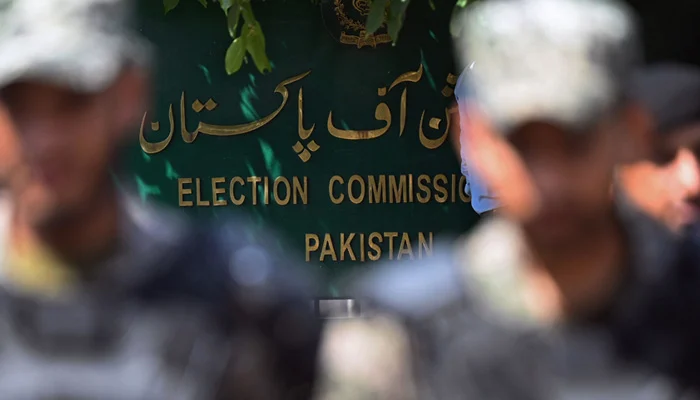ISLAMABAD: True representation of voters, contesting candidates or political parties in the parliament and provincial assemblies will be impossible without fresh delimitation of constituencies and revised electoral rolls, the Election Commission of Pakistan (ECP) said on Friday.
In a three-page long order outlining its recent series of meetings on digital census and general election, the electoral watchdog said the accurate representation of voters, candidates and political groups is the fundamental principle of constitutional democracy as envisaged by the Constitution.
The ECP’s order comes in the wake of criticism by political parties, legal and political experts as well as civil society regarding adherence to the 90-day limit for conducting polls after dissolution of all assemblies in the country.
The ECP, in its order, mentioned that it is the duty of the commission to prepare electoral rolls for election to the National Assembly, provincial assemblies and local governments as well as to revise such rolls periodically to keep them updated, as per clause (a) of Article 219 of the Constitution.
“And whereas; after the publication of the 7th Population Census approximately 20,8051- census blocks have increased, some have been merged while others have split, for which revision/ updation of the electoral rolls is necessary to adjust the registered voters in accordance with census charges, circles and blocks according to census 2023,” it explained.
The ECP emphasised that the provision of true representation to the electorate is one of the constitutional duties of the Commission in terms of Article 218(3) and the bedrock of the parliamentary democracy… apart from being the fundamental right of the contesting candidates, political parties and electorate.
“The august Supreme Court in the cases of Worker’s Party reported in PLD 2012 SC 681, and in Benazir Bhutto Vs. Federation of Pakistan reported as PLD 1988 SC 416, and Ch. Nasir Iqbal Vs. Federation of Pakistan PLD 2014 SC 72, held that the right to vote, the right to contest elections and the right to form a political party are fundamental rights guaranteed under the Constitution.
“Without fresh delimitation of constituencies, and updated electoral rolls, none of the voters of constituencies, contesting candidates and political parties will have true representation in the parliament and provincial assemblies which is the fundamental principle of constitutional democracy as envisaged by the Constitution. And whereas; as per the settled law of the land, different provisions of the Constitution are to be read together, reconciled and harmonized to give a true and meaningful interpretation to the Constitution,” the order said.
The electoral body, it noted, is charged with the duty under Article 218(3) of the Constitution of the Islamic Republic of Pakistan to organise and conduct the elections and to make such arrangements as are necessary to ensure that the election is conducted honestly, justly, fairly and in accordance with law and that corrupt practices are guarded against.
“And whereas; Section 17(2) of the Elections Act, 2017 provides that the Commission shall delimit constituencies after every census officially published…Pakistan Bureau of Statistics published 7th Population And Housing Census (digital census) vide notification dated 07-08 -2023,” it said.
The commission in its order wrote about resolving the issue of delimitation before the ensuing general elections, it considered the provisions of Articles 17, 218(3), 219,222 (b), 224 (2), 254 of the Constitution and section 17(2) of the Elections Act 2017, the judgments of the apex court including Federation of Pakistan Versus Haji Muhammad Saifullah Khan reported in PLD 1989 SC 166…the arrangements mentioned in Article 218(3) are not limited to the appointment of DROs, ROs, AROs, the printing of ballot papers but also include preparation of updated Electoral Rolls in terms of Article 219(a) and delimitation of constituencies and carry out delimitation of constituencies.
“That as a consequence of the 7th Population Census officially published, substantial changes in the population in the provinces and constituencies at the district level have occurred. Therefore, the Commission asked the office to provide details of district-wise changes in the constituencies in pursuance of the last preceding census officially published in 2023.
“The office was also directed to give details of newly created districts and their impact on the existing constituencies. And whereas; the delimitation of constituencies and updated, error-free electoral rolls after each population census officially published are pre-requisites of elections,” the order said.
The commission added: “Now therefore, the Commission holds and decides that carrying out fresh delimitation of constituencies on the basis of last preceding census officially published in 2023 is a mandatory requirement of law as contained in section l7(2) of the Elections Act,20l7, before the ensuing general election to ensure the fulfilment of duty under Article 2l8(3) of the Constitution and for the true representation to the electorate, political parties and contesting candidates to protect their fundamental rights as guaranteed under Article l7(2) of the Constitution so that the elections are conducted honestly, justly and .fairly. The office is directed to take follow-up action accordingly.”



Comments are closed.